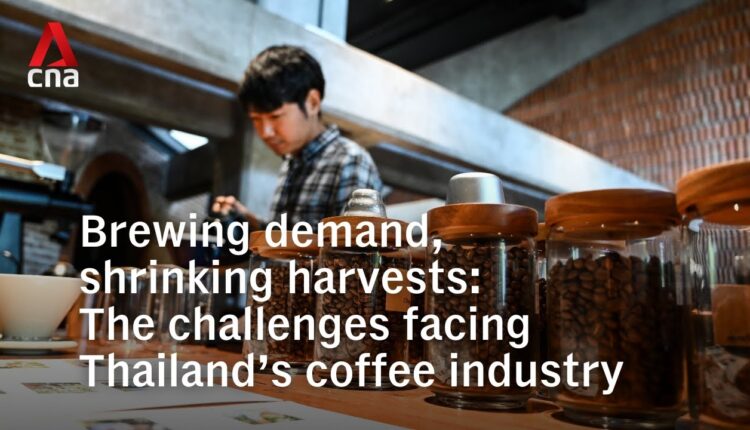Thailand's Specialty Coffee: Climate Challenges & Growth – CoffeeTalk
Thailand’s coffee industry is experiencing a revolution, with a surge in demand for specialty and organic beans and local producers like Chhatree Seang gaining recognition for their artisanal processes. However, the industry faces mounting challenges such as erratic rainfall, rising temperatures, and declining yields, which have led to a decline in coffee production by about 80% since the early 2000s.
Despite these challenges, Thai coffee is having a moment, with the average Thai now consuming 340 cups of coffee per year, highlighting the beverage’s growing cultural significance. This shift is pushing the industry to redefine itself as a niche supplier of specialty coffee. Climate change has had a significant impact on coffee production, disrupting the delicate balance required for coffee cultivation. As a result, Thai coffee producers are pivoting towards value, focusing on quality, organic practices, and artisanal methods.
Community-based initiatives, such as Aka Armor, are exemplifying this trend, working with indigenous hill tribe communities to empower them to produce specialty coffee and participate in the burgeoning market. The co-founder of Aka Armor highlights the transformative potential of coffee production, positioning coffee as a prestigious and desirable career path.
However, specialty coffee production remains an outlier, demanding significant investment in skills, knowledge, equipment, and marketing. Support from organizations and companies is crucial to help smallholder farmers persist and meet the rigorous standards required for specialty coffee. Pana Coffee, another key player in the industry, is working to bridge the gap between smallholders and consumers by investing in infrastructure and promoting organic practices. Their vision is clear: “Thailand doesn’t produce enough coffee for ourselves, right? So there’s still room to grow.”
The economics of Thai coffee are also challenging. High costs of land, labor, and processing make it difficult for local producers to compete with imported beans, leading to Thailand now importing the vast majority of the coffee it consumes. This reliance on imports is compounded by steep import duties, which further drive up prices for consumers and retailers. To counteract these import duties, the only way to counteract the import duties is to improve local coffee to the point where the cost is not too high for retailers to sell to consumers.
Thailand’s coffee industry is experiencing a paradigm shift as costs rise and supply fluctuates. Specialty cafes in Bangkok are reimagining the coffee experience, emphasizing experience over commodity. This shift is elevating coffee to the status of a luxury item, with consumers willing to pay a premium for quality, provenance, and experience. The analogy to wine and whiskey is apt, as coffee enthusiasts are increasingly drawn to specialty beans with unique flavor profiles and stories.
Transparency and education are crucial in this new reality, as climate change affects supply and drives up prices. Specialty cafes and producers are working to inform consumers about the challenges facing the industry, building trust and fostering a deeper appreciation for the complexities of coffee production. Despite the obstacles, there is a sense of optimism among Thai coffee producers, such as Chhatree Seang, who remains hopeful that coffee can persist in Thailand.
Thailand’s coffee industry stands at a crossroads due to significant challenges such as climate change, high production costs, reliance on imports, and shifting consumer expectations. However, these challenges present opportunities for growth and transformation. By embracing specialty and organic practices, investing in infrastructure, and fostering community-based initiatives, Thailand can carve out a unique niche in the global coffee market. The focus on quality over quantity aligns with broader trends in food and beverage consumption, where provenance, sustainability, and experience are increasingly valued.
Empowering smallholder farmers is central to this vision, as they can thrive in the specialty coffee sector with the right support, including training, access to markets, and investment in equipment. Community-driven approaches can yield both economic and social benefits.
The evolution of Thai coffee is also reshaping the country’s coffee culture, as consumers become more discerning and willing to pay for quality. Cafes and roasters are responding with innovative offerings and immersive experiences, focusing on storytelling, connection, and appreciation for the craft. As the industry navigates this new reality, education and transparency will be key to building consumer trust and sustaining growth.
Source: Coffee Talk



